Wanna know an important fact about Koreans? They highly value politeness. So if you wanna Korean, learn the Korean polite words like 주세요 (ju se yo)!
Remember the scene in the Korean drama Hometown Cha-cha-cha where Hye-jin asked Du-sik to speak politely to her friends? Well, it’s because politeness is very important in Korean culture. It is very evident when you simply watch Korean dramas. So, if you’re planning to go to South Korea, you’ll need to learn more than just basic Korean phrases and Korean pronunciation. You should also learn about polite words in order to not offend anybody.
The Influence Of Confucianism
Korean people are known to value politeness and respect. Showing due respect to elderly people, whether they are physically older or of a higher social rank, is extremely important in Korea. This stems from the teaching of Confucianism.
Age and social standing play a significant role in the vertical hierarchy of Confucianism, hence the significance of honorifics in Korean culture. The idiom 장유유서 (jangyuyuso) is the foundation of Confucianism, which indicates there is a rigorous hierarchy between adults and children that must be observed and obeyed.
The Particle 요 (Yo)
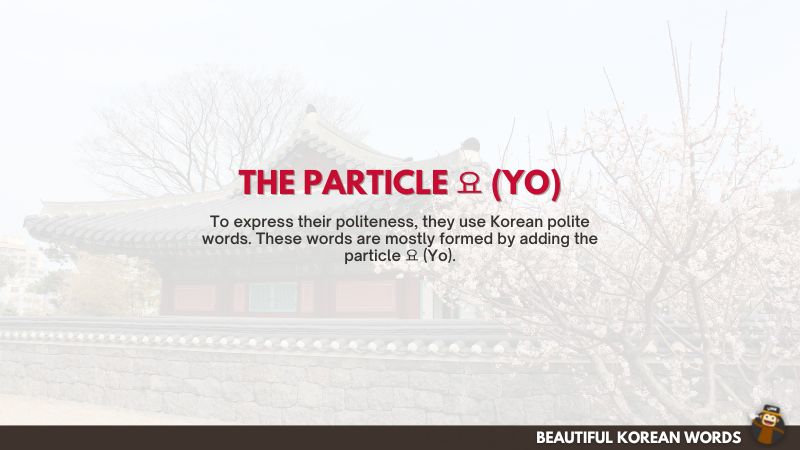
What do you notice about the Korean words above? Yes! The presence of the particle 요 (Yo). But, what does this particle mean, and how important is it in expressing politeness.
There are varying levels of politeness in Korean, and this is expressed by the way a phrase ends (attached to the end of the final verb or adjective) – if it ends with ‘yo’ (요), this is a polite but informal language that someone may use with an older person or someone they don’t know well. If the sentence ends with ‘(b/sub)nida’ (ㅂ/습니다), it is a very polite and formal phrase that you would employ in a formal setting.
The particle 요 (Yo) is always formal. With the particle 요 (yo), you can add politeness to your speech. Then, how can we conclude a statement with 요 (yo)?
- When the verb stem ends in a vowel, such as 가 (ga) in 가다 (gada) (which means “to go”), 다 (da) can be replaced with 요 (yo). We do not require any extra particles.
- When the verb stem ends in a consonant, such as 놀 (nol) in 놀다 (nolda) meaning “to play,” an additional vowel 아 (a) is required before 요 (yo) to say 놀아요. (norayo).
- In Korean, there are other vowels known as “negative vowels,” such as ㅓ (eo), ㅜ(wu), and ㅡ (eu). When the final vowel of the word is negative, you must use 어 (eo) rather than 아 (a).
Polite Korean Phrases
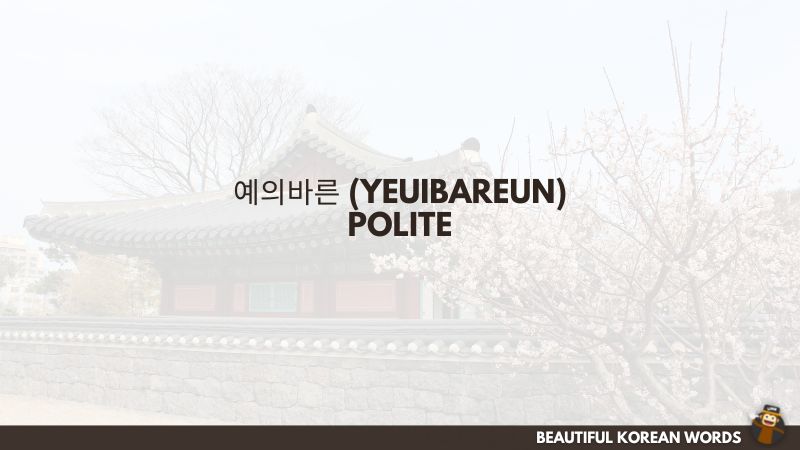
The Korean word for polite is 예의바른 (yeuibareun). As mentioned above, being polite is a very big deal in Korean culture. They have levels of formality, meaning they have different ways of talking to people based on their rank or status. To express their politeness, they use Korean polite words. These words are mostly formed by adding the particle 요 (Yo).
In learning Korean, you’ll encounter a lot of formal Korean phrases and informal Korean phrases. But the thing is, if you’re not a native speaker, you might get confused, which might lead to misunderstanding with the locals. So, here are some common Korean phrases in a polite form that you can learn as a beginner.
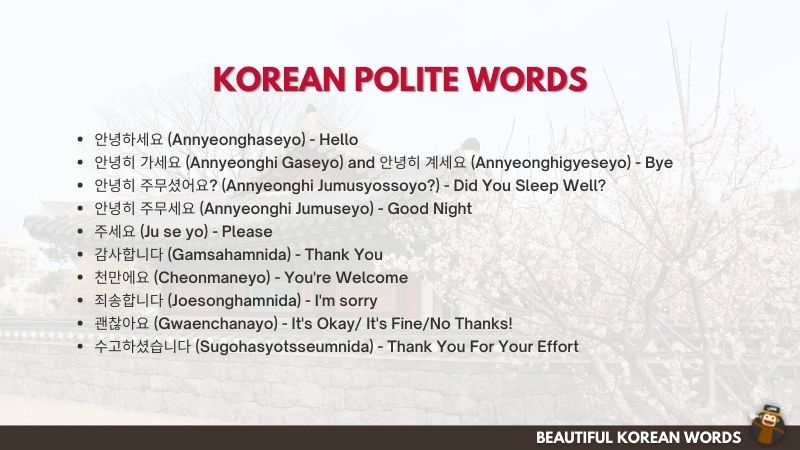
1. 안녕하세요 (Annyeonghaseyo) – Hello
This is indeed one of the most common words and phrases in Korean that people know. Annyeong (안녕) is the informal form of the Korean greeting that can only be used when talking to your Korean friends or people the same age as you. Annyeonghaseyo (안녕하세요) is the polite way of saying “Hello” in Korean. But, the kind of “Hello” that is used in phone conversations is “yeoboseyo (여보세요).”
Another important thing to know is that saying Annyeonghaseyo is always followed by a bow. In some situations where you can’t fully bow, you can simply nod your head down. This is also true in other Korean greetings.
2. 안녕히 가세요 (Annyeonghi Gaseyo) And 안녕히 계세요 (Annyeonghigyeseyo) – Bye /
The next polite Korean greeting that we will learn is 안녕히 가세요 (annyeonghi gaseyo). This phrase literally means “go well/peacefully.” But, be careful because you can only use it for people who are leaving, not when you’re leaving. The informal way to say this 잘 가 (jal ga)
On the other hand, annyeonghigyeseyo (안녕히 계세요) is used when you are leaving. This Korean phrase literally means “stay well/peacefully.” So, always remember that is only said towards the people who will stay as you leave.
At first, you can’t really hear much of a difference between the above phrases, especially because most Koreans speak faster. Still, when you listen carefully or speak slowly, you’ll notice that they are different. This is also quite confusing even for native speakers, especially for the young ones. Taking time to learn this is also a way of showing respect to the Korean culture and their native language.
3. 안녕히 주무셨어요? (Annyeonghi Jumusyossoyo?) – Did You Sleep Well?
When you’re in a beautiful place like South Korea, you might wanna start the day right. Therefore you need to learn some formal phrases to greet someone during the day, like 안녕히 주무셨어요? (annyeonghi jumusyossoyo) which means “Did you sleep well?”. The informal form of this word is 잘잤니 (jaljanni).
Koreans don’t have an exact translation for a good morning. There are Koreans who use 좋은 아침이에요 (joeun achimieyo) for “Good morning,” but some find it awkward to say, so they stick to 안녕히 주무셨어요? (annyeonghi jumusyossoyo?).
4. 안녕히 주무세요 (Annyeonghi Jumuseyo) – Good Night
One of the Korean polite words and phrases that you also need to know is 안녕히 주무세요 (annyeonghi jumuseyo). This phrase means “sleep well.” This is a perfect way to say good night to someone in a polite/formal way. Of course, do not forget the bow. But, if you’re talking with your friends, you can use the informal form, which is 잘 자 (jal ja).
5. 주세요 (Ju se yo) – Please
The word “Please” for English speakers is indeed one of the most commonly used polite words. Almost every polite English phrase uses this, and in Korean, they say 주세요 (ju se yo). Koreans have a few different ways to say “Please,” but 주세요 (ju se yo) is the most common one.
This phrase can be used in the majority of scenarios, such as ordering food in a restaurant or requesting a taxi to transport you to the railway station. The informal form of 주세요 (ju se yo) is 줘 (jwo) which is a term used when talking to friends or someone of the same age.
6. 감사합니다 (Gamsahamnida) – Thank You
When you start learning the Korean language, it’s impossible not to encounter this word right away. Actually, there are different ways to say “Thank you” in the Korean language, but 감사합니다 (gamsahamnida) is the most common one, followed by a bow. You can also use the word 감사해요 (gamsahaeyo), but this is not often used.
Another way of saying “Thank you” in Korean, which you might have also heard a lot is 고마워요 (gomawoyo). The informal form of this phrase is 고마워 (gomawo).
7. 천만에요 (Cheonmaneyo) – You’re Welcome
To politely say “You’re welcome,” you can use 천만에요 (cheonmaneyo). Being polite doesn’t always mean using Korean polite words. Responding is also a form of politeness. There are different ways to say “You’re welcome” in Korean, and you can read them on this blog.
8. 죄송합니다 (Joesonghamnida) – I’m Sorry
When learning Korean polite words, you should never miss learning how to say “I’m sorry” politely. Well, saying sorry is already a way of expressing politeness, but of course, you still have to learn it. There are many ways to say “I’m sorry” in the Korean language, but the most polite form is 죄송합니다 (Joesonghamnida).
Other ways of saying “Im sorry” in a polite way are 죄송 해요” (joesonghaeyo), 미안하다 (mianhada), 미안해 요 (mianhaeyo). Koreans also bow their heads or nod when they say these words.
9. 괜찮아요 (Gwaenchanayo) – It’s Okay/ It’s Fine/No Thanks!
You might have heard 괜찮아요 (gwaenchanayo) many times in Korean dramas. It is indeed a common Korean phrase that you hear from Korean speakers. It is a formal form of saying “It’s okay/ It’s fine/No thanks” in Korean. You can say this phrase when someone says “I’m sorry” to you. You can also use this phrase to politely refuse something offered to you.
You might have also heard the informal form of this word which is gwanchana (괜찮아), a very special word for the fans of the K-drama Welcome to Waikiki. But remember to only use this formal form when talking to your friends.
10. 수고하셨습니다 (Sugohasyotsseumnida) – Thank You For Your Effort
Thanking someone for their work is also another way of expressing politeness in Korean. When you go to South Korea, you’ll hear this a lot. It is a way of showing your politeness and gratitude to someone who made an effort for you.
Some of the situations where you can use this are when someone does some work for you, like fixing some leaks, cleaning your house, and more. You can also hear this in a company or office after they finish their work or task. Remember the scene in Hometown Cha-cha-cha when the shooting of a TV show wrapped up? This is what Ji Seong Hyun said to the team and cast.
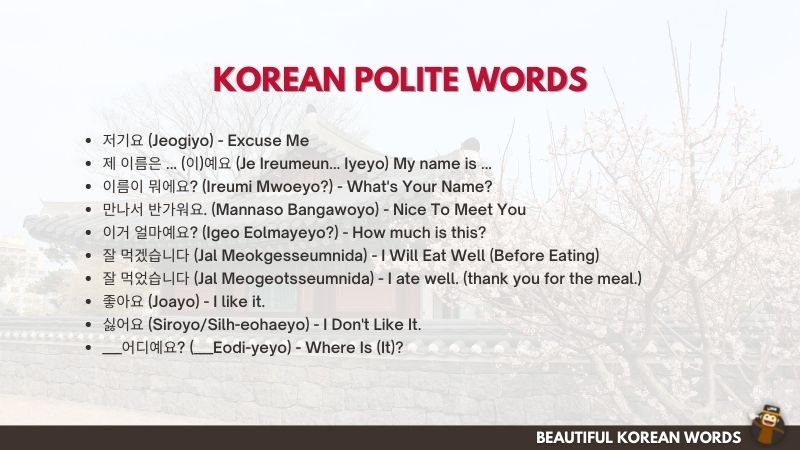
11. 저기요 (Jeogiyo) – Excuse Me
Saying excuse me in a polite way is, of course, one of the Korean polite words that you must learn. The polite way of saying “Excuse me” is 저기요 (jeogiyo). It is also the most common way to say “Excuse me” in Korean. The informal way of saying it is 저기… (jeogi), which I think you have already heard many times in K-dramas.
This will be very helpful, especially if you’re going around the country. You can use this to call someone’s attention, like when you ask for direction, order food, or go shopping. Remember that you’re in a foreign country, so calling someone’s attention is tricky. This 저기요 (Jeogiyo) is a safe word to use.
12. 제 이름은 … (이)예요 (Je Ireumeun… Iyeyo) My name Is …
Learning how to introduce yourself is also important when you go to Korea. When you know how to introduce yourself, you can start a conversation or make small talk with someone. To introduce yourself politely, you can say 제 이름은 … (이)예요 (je ireumeun iyeyo). The phrase 제 이름은 … 입니다 (Je Ireum-Eun … Imnida) is a more formal way to say it that can be used in formal situations like job interviews.
13. 이름이 뭐에요? (Ireumi Mwoeyo?) – What’s Your Name?
Making new friends is hard when you don’t speak their language. So, the key is to do it in a polite way. You can simply ask 이름이 뭐에요? (ireumi mwoeyo?). If there’s a need to exchange your phone number, you can say 전화 번호가 뭐예요? (Jeonhwa beonhoga mwoeyo) which means “What’s your phone number?”.
14. 만나서 반가워요. (Mannaso Bangawoyo) – Nice To Meet You
After learning how to introduce yourself, you also need to learn how to say, “It’s nice to meet you.” It is also a polite thing to say when you introduce yourself to someone. In Korean, they use 만나서 반가워요 (mannaso bangawoyo)
15. 이거 얼마예요? (Igeo Eolmayeyo?) – How Much Is This?
South Korea is a haven for shopping. You can buy lots of high-quality products in South Korea, like skincare products, makeup products, gadgets, and more. So, if you’re on a shopping spree and you wanna ask about the price of something in a polite way, you can say 이거 얼마예요? (Igeo Eolmayeyo?).
16. 잘 먹겠습니다 (Jal Meokgesseumnida) – I Will Eat Well (Before Eating)
If you’re a fan of anything Korean, then you must not have missed trying Korean food. Koreans have a tradition of saying 잘 먹겠습니다 (jal meokgesseumnida) before they eat their meal. Koreans have a lot of eating etiquette and saying this Korean phrase is one of them. Saying 잘 먹겠습니다 (jal meokgesseumnida) is a table manner which is a way of giving respect to the one who prepared or bought the food.
17. 잘 먹었습니다 (Jal Meogeotsseumnida) – I Ate Well. (Thank You For The Meal.)
The phrase 잘 먹었습니다 (jal meogeotsseumnida) is connected to the previous phrase. These are also Korean polite words to say, but it is said after eating. This is a way of saying thank you for the meal. Koreans were taught to say these two words while they were growing up. Saying this phrase will make you sound really polite.
18. 좋아요 (Joayo) – I like it.
If you wanna say “I like it” in a polite way, you can say 좋아요 (joayo). You can use it, for example, when you like the gift that is given to you or when you like a photo on Instagram or Facebook. You can use it to say 방탄소년단을 좋아요 (bangtansonyondaneul joayo) or “I like BTS.”
19. 싫어요 (Siroyo/Silh-eohaeyo) – I Don’t Like It.
If you want to express your dislike politely, you can use 싫어요 (siroyo/silh-eohaeyo). This phrase also has the English equivalent of “I hate you.” Expressing your disagreement with or dislike may cause negative feelings in some situations, so make sure that you’ll say it politely.
20. ___어디예요? (___Eodi-yeyo) – Where Is (It)?
Traveling to South Korea, especially for the first time, will require you to ask many questions, and one of those is asking about the location. The Korean polite word to use for this situation is ___어디예요? (___eodi-yeyo). You can simply put the place before this phrase like the following phrases:
- 버스 정류장이 어디예요? (Beoseu jeongnyujangi eodiyeyo?) – Where is the bus stop?
- 기차역이 어디예요? (Gichayeogi eodiyeyo?) – Where is the train station?
- 화장실은 어디에 있습니까? (Hwajangsireun eodie isseumnikka?) – Where is the bathroom?
Other Korean Polite Words
All the words you have learned above are Korean polite words that you can use as a beginner. Here are additional Korean words that you can use in daily conversations. If you want more basic Korean phrases, you can check this blog out.
| English Translation | Korean (Informal) | Pronuciation | Korean (Polite) | Pronunciation |
| Yes | 응 (Eung)/ 어 (Eo) | / | 네 (ne) | |
| No | 아니 (ani) | 아니요 (aniyo) | ||
| Why? | 왜? (wae?) | 왜요? (waeyo?) | ||
| Just a moment. | 잠시만 (jamsiman) | 잠시만요 (jamsimanyo) | ||
| It’s delicious. | 맛있다 (masitda) | 맛있어요 (masisseoyo) | ||
| How was your lunch? | 점심은 어땠어요? (jomsimeun ottaessoyo) | 점심은 어땠어? (jomsimeun) ottaesso | ||
| I miss you. | 보고싶어 (bogosipeo) | 보고 싶어요 (bogosipeoyo) | ||
| I love you. | 사랑해요 (sarang-haeyo) | 사랑해 (saranghae) | ||
| See you. | 다음에 봐요. (daeume bwayo) | 안녕 annyeong/ 다음에 봐 (daeume bwa) | / |
Learn The Korean Language With Ling Now!
Learning Korean polite words is a kickstart to learning the Korean language. But it’s just the tip of the iceberg. There’s a lot more to discover in the shallow. The good thing is Ling App can accompany you in your language learning journey.
Ling App is a language learning app developed for language learners to achieve their goals. There are a lot of skills to develop when learning a new language. With Ling App’s advanced features, you’ll be able to improve your language skills in record time. The platform has interactive lessons, dialogues, grammar explanations, as well as blogs. All of these features will definitely help you in your language learning journey.
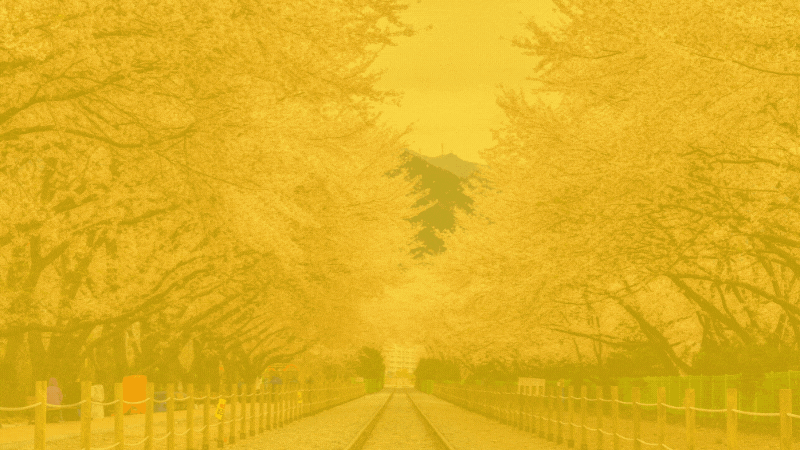
Have in-depth learning about the Korean language. After learning the Korean polite words, put yourself into a challenge. Learn Korean with Ling App now!
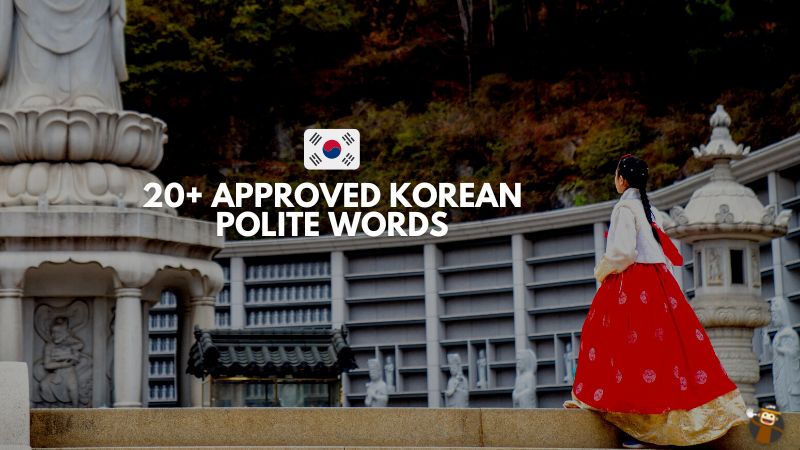































































One Response
Thank you for this informative site. This is so helpful.